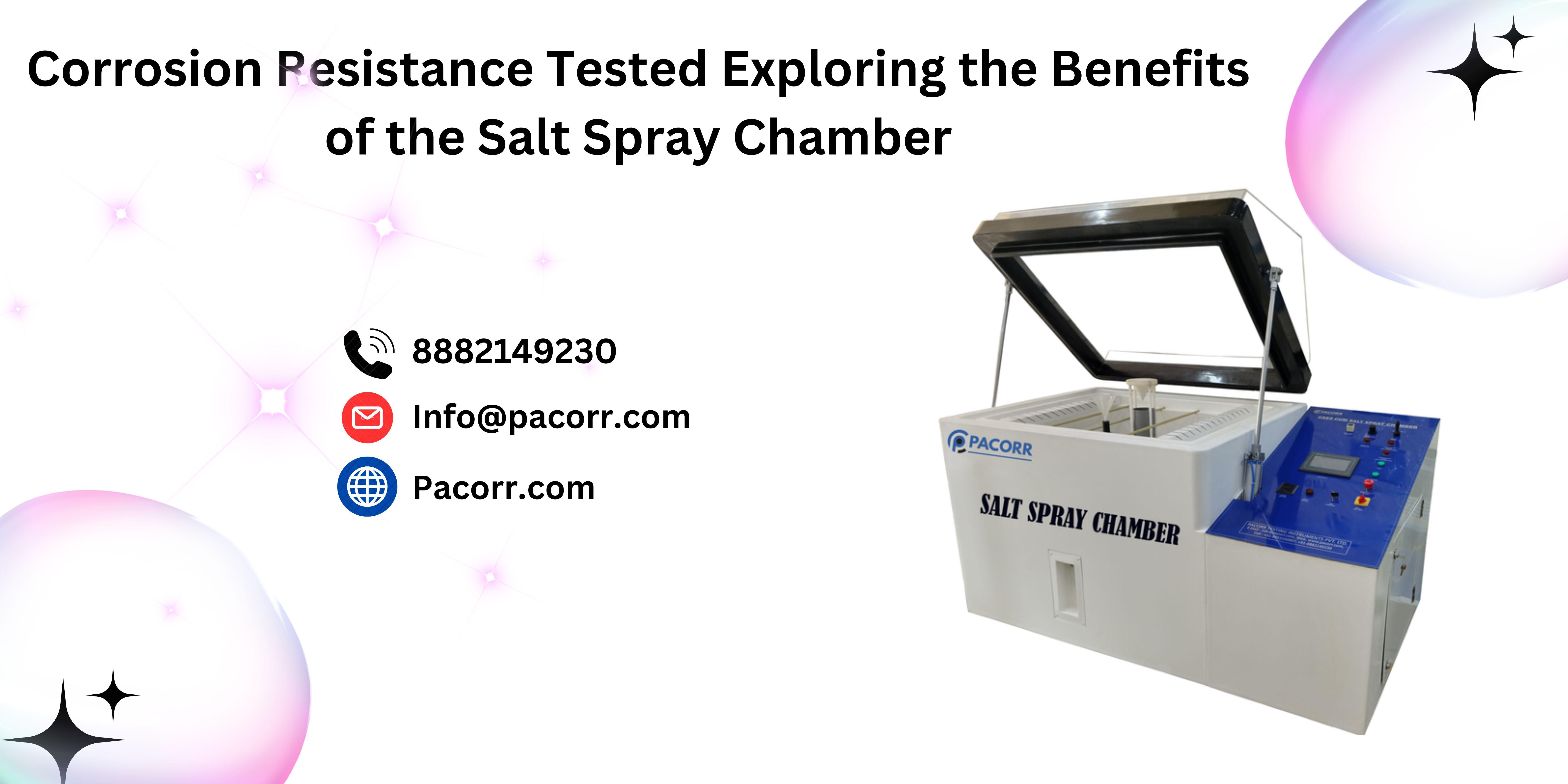What is a Salt Spray Chamber?
A Salt Spray Chamber, also known as a salt fog tester, is an environmental testing device that simulates corrosive conditions to evaluate the resistance of materials and coatings to corrosion. The chamber creates a controlled environment where saltwater is atomized and sprayed onto test specimens, replicating the harsh conditions products might encounter in real-world applications, such as marine environments, industrial settings, or even everyday household use.
How Does the Salt Spray Chamber Work?
The Salt Spray Test Chamber operates through a systematic process that includes:
- Preparation of the Solution: A saline solution, typically a mixture of sodium chloride and distilled water, is prepared. The concentration of the solution is crucial, as it must mimic the salt levels found in real-world environments.
- Atomization: The saline solution is heated and then atomized into fine droplets. These droplets are then sprayed into the chamber, creating a fog-like atmosphere.
- Test Specimen Placement: Test specimens are placed inside the chamber at specific angles and positions to ensure uniform exposure to the salt spray.
- Controlled Environment: The chamber maintains controlled temperature and humidity levels, which can be adjusted to simulate different environmental conditions.
- Testing Duration: The duration of exposure can vary based on testing standards and requirements, ranging from a few hours to several weeks.
- Evaluation: After testing, the specimens are inspected for signs of corrosion, including rust formation, pitting, and coating failure.
Applications of the Salt Spray Chamber
The Corrosion Test Chamber is widely utilized across various industries, including:
- Automotive: Testing the corrosion resistance of vehicle components, such as body panels, fasteners, and coatings.
- Aerospace: Evaluating materials and components used in aircraft that are exposed to harsh environmental conditions.
- Electronics: Assessing the durability of electronic enclosures and components against corrosion.
- Manufacturing: Ensuring that finished products, such as hardware and machinery, can withstand exposure to corrosive elements.
- Construction: Testing building materials, including metal roofing and siding, for long-term durability.
Benefits of Using a Salt Spray Chamber
- Enhanced Product Durability: By identifying potential weaknesses in materials and coatings, manufacturers can make informed decisions to enhance product durability and performance.
- Compliance with Standards: Many industries require compliance with specific standards for corrosion testing. The Salt Spray Chamber helps manufacturers adhere to these regulations, such as ASTM B117 and ISO 9227.
- Improved Customer Satisfaction: Products that withstand corrosion are more reliable, leading to higher customer satisfaction and fewer warranty claims.
- Cost-Effective Testing: Early detection of corrosion-related issues can save manufacturers from costly recalls and repairs, ultimately improving the bottom line.
- Customizable Testing: The Salt Spray Test Chamber allows for customizable test conditions, enabling manufacturers to simulate various environmental scenarios based on their specific needs.
Conclusion
Investing in a Salt Spray Chamber from Pacorr Testing Instruments is a strategic decision for manufacturers committed to quality and durability. Our advanced testing solutions provide valuable insights into the corrosion resistance of materials and coatings, helping businesses meet industry standards and customer expectations. By incorporating corrosion testing into your quality control processes, you can ensure that your products are built to last, even in the most challenging environments.
For more information about our Salt Spray Chamber and how it can benefit your operations, visit us at Pacorr.com. Let us help you enhance your product quality and reliability today!

